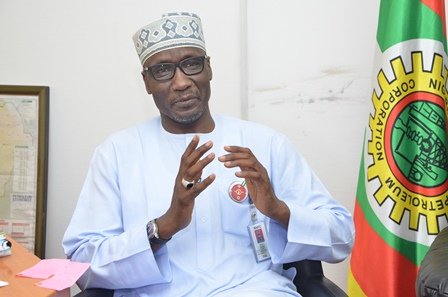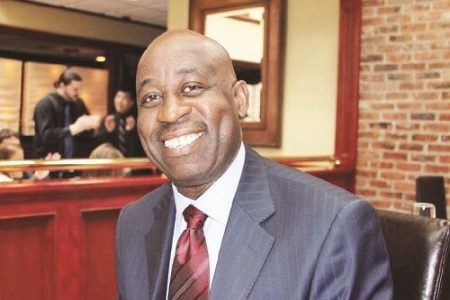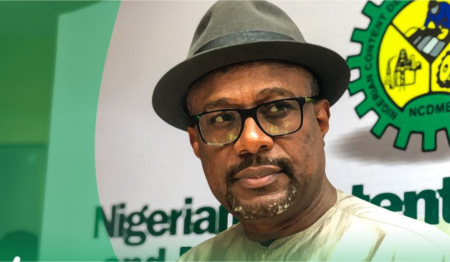
OpeOluwani Akintayo
Lagos — Group General Manager, NNPC, Mele Kyari has rebuffed clamour from Nigeria’s downstream oil and gas sector operators, to pass the Petroleum Industry Governance Bill, PIGB if it was serious about deregulation, saying the sector does not need the Bill to deregulate.
In an interview with Premium Times, Kyari said deregulation is “purely a policy issue”.
“You don’t need the PIB to go ahead with the deregulation. This is purely a policy issue”, he said.
He said the NNPC will be one of the companies that would be regulated as there will be an oversight by the regulator over the Corporation itself as a business and one of the players in the market.
“I will not speak to the issue of NNPC’s role under the deregulated environment. I also did speak about liberalizing the price of PMS (premium motor spirit) for the simple reason that the NNPC is in the receiving end”.
Although he said government has agreed to liberalise the prices of petroleum products as the market should be allowed to determine the prices, however, the Petroleum Products Pricing Regulatory Agency, PPPRA on Monday, for the second time in the year, slashed pump price for petrol, pegging price band between N121.50 to N123.50 per litre.
It also fixed the band for ex-depot price at between N102.13 and N103.13 per litre.
“Then, there is another hidden cost, which is the cost of foreign exchange used in doing the importation. Government used to give importers foreign exchange at N305 to the dollar at the regulated foreign exchange rate by the Central Bank, which the NNPC declare value to the Federation”.
“In combination of the difference with the open market rate, one will be seeing exposure in excess of N2 trillion in a year where the average price of crude oil is in excess of $55 to the barrel. That could have been used for anything else in the economy. But, that is subsidizing the elite. We cannot continue that way”.
“When some people say deregulation should be included in the PIB, I don’t agree. It is a policy matter. We do not need a PIB to liberalise the prices of petroleum products. It was never in any law that we must have the price of petroleum products in the law. It does not exist”.
He said he agrees that the Petroleum Products Pricing Regulatory agency should oversee the price modulating mechanism.
“The price modulation is simply a mechanism that will ensure the ordinary people are not exploited. It is mechanism that gives guidance so that people don’t do what they should not do, which is to sell at prices that are out of the market”.
“No country folds its arms and allow the things to go wrong before intervening. Even in advanced countries where there are liberal economies, there is some form of regulation in the context of nobody being given subsidy. But one cannot do things one should not do”.
“If the product is produced here, market forces will naturally prevent you from selling at any price that you want”.
“But, we are not a regular economy. We have transportation issues and other hindrances to the movement of products across the country. That means we will continue to have institutions around that will ensure we get the right price in the market. Yes, engagements with stakeholders are necessary, but, it is a policy issue. The solution is to have alternatives in the form of compressed natural gas that will make fuel cheap in the country”.
“That is why we are pursuing a national gas policy that will help provide the alternative”.
“Gas brings national development. It is the biggest enabler. Oil brings cash, but gas brings development through power, industries, and other things that are built around gas. We are focused on delivering a number of projects”, he said.



